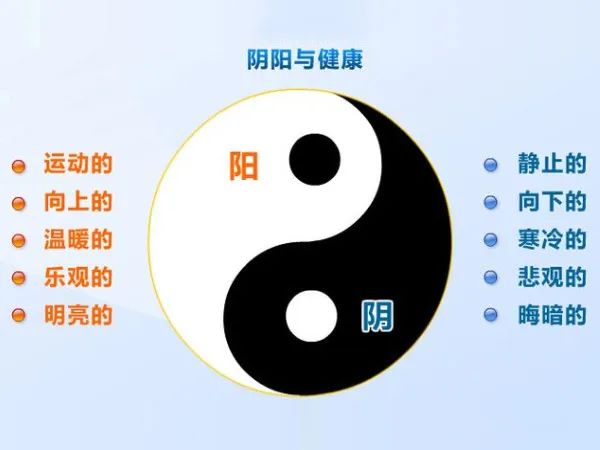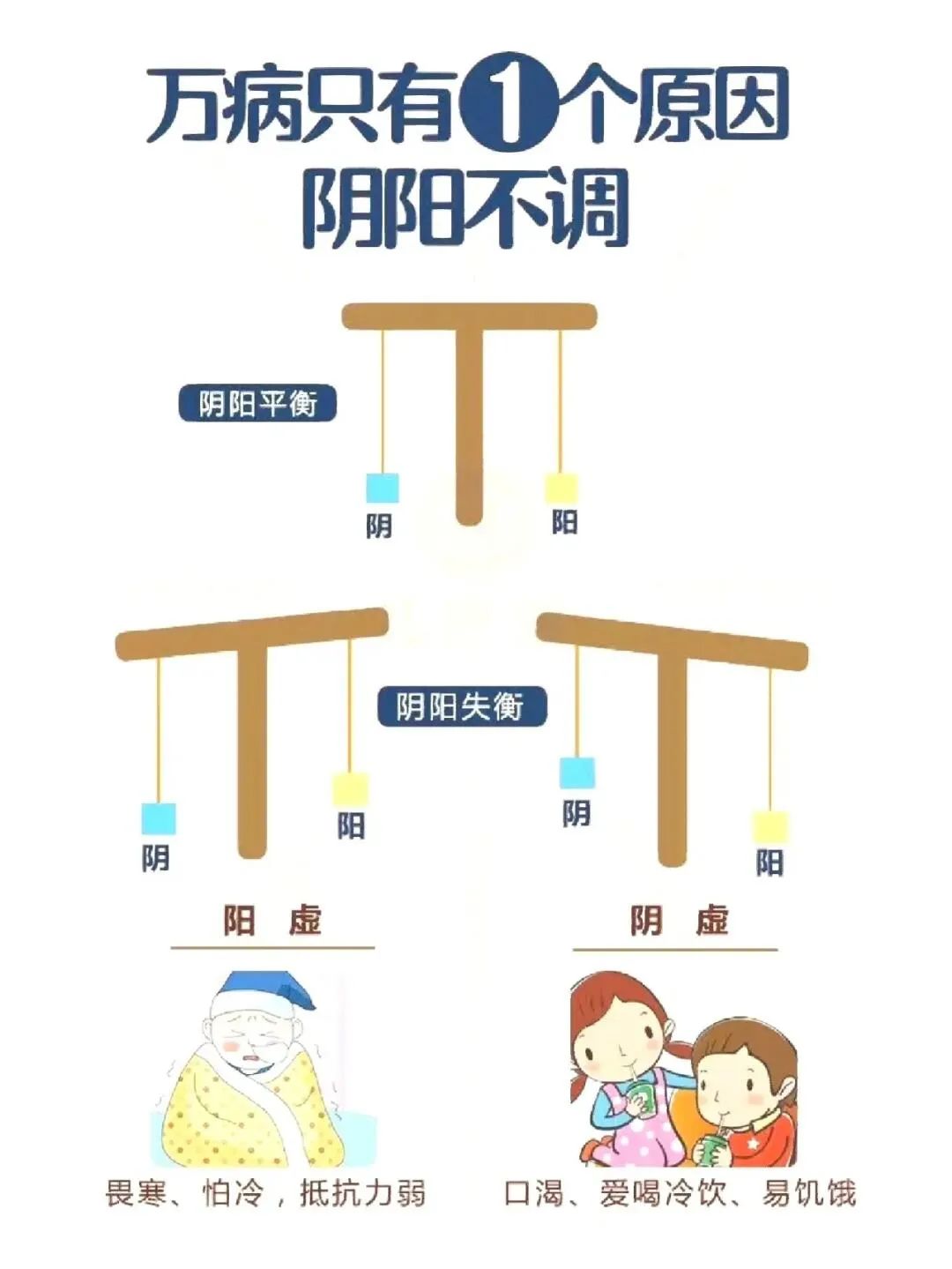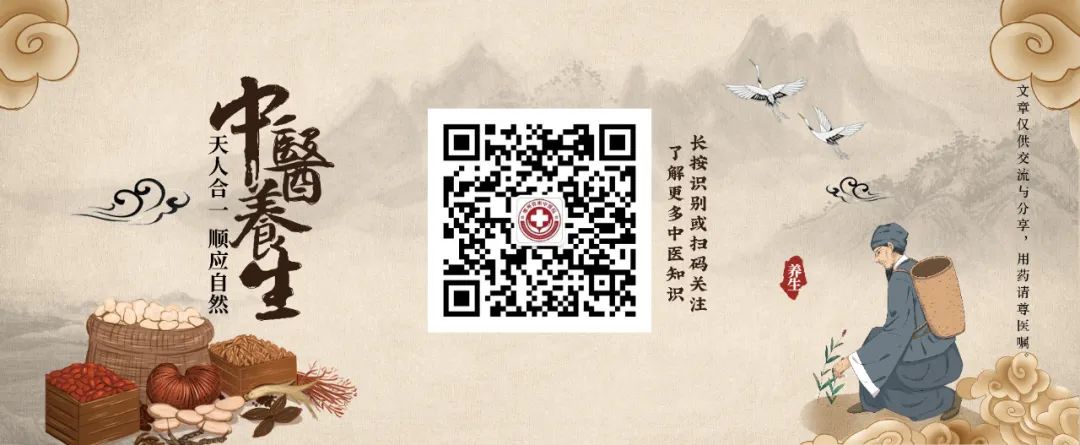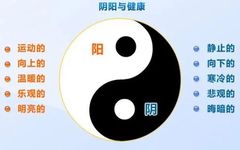Life is a state of internal stability, which depends on the balance of Yin (阴) and Yang (阳). Yin and Yang are like the two weights on a balance scale, one on the left and one on the right; only when they are equal does the scale balance. Once Yin and Yang are out of balance, the scale tilts to one side, breaking the equilibrium, and a person becomes ill. Therefore, to achieve long-term health, one must constantly maintain the balance of Yin and Yang. What is nourishment in health preservation? It is the balance of Yin and Yang; only with harmonious Yin and Yang can we live a life free from illness.
To live a long life, it all depends on balancing Yin and Yang.
What is the most important aspect of health preservation? Just four words: Yin and Yang balance.
All things in the world can ultimately be divided into two categories: one is Yin, and the other is Yang. Yin and Yang are two opposing energies; they are positive and negative, left and right, up and down, front and back, mutually restraining and interdependent. It is precisely because Yin and Yang are opposing and interdependent that we have heaven and earth, sun and moon, and male and female.
The human body, though complex, ultimately consists of only two types of energy: one is Yin, and the other is Yang. The continuous change of these two energies leads to life, aging, illness, and death.

The Huangdi Neijing (黄帝内经) states: “Yin and Yang are the principles of heaven and earth, the framework of all things, the parents of change, the source of life and death, and the abode of the spirit. To treat illness, one must seek the root.” The Huangdi Neijing is a lengthy text of over a hundred thousand words, but it essentially speaks of Yin and Yang.
A person’s life is inseparable from birth, aging, illness, and death. What is birth? Birth is the temporary unity of Yin and Yang energies within the body. What is aging? Aging is the continuous change and decline of Yin and Yang within the body. What is illness? Illness is the disorder of Yin and Yang energies within the body. What is death? Death is the disintegration of this unity of Yin and Yang.
What is life? Life is a balanced state formed by the contradictory energies of Yin and Yang, where the positive is Yang and the negative is Yin. Only with the balance of Yin and Yang can a person exist. The Huangdi Neijing states, “The root of life is based on Yin and Yang.” In the world, heaven is above as Yang, earth is below as Yin, and humans in between pursue the balance of Yin and Yang. Therefore, life is a state of neither too high nor too low, a balance of Yin and Yang. If this balance is completely broken, life will end. What state follows the end of life? It is the separation of Yin and Yang. At the crematorium, one can observe this phenomenon of Yin and Yang separation: the Yang energy transforms into wisps of smoke rising to the sky, while the Yin energy becomes ashes buried underground, and a person, with their head under the blue sky and feet on the yellow earth, disappears from the world.
Life is a state of internal stability, which depends on the balance of Yin and Yang. Yin and Yang are like the two weights on a balance scale; only when they are equal does the scale balance. Once Yin and Yang are out of balance, the scale tilts to one side, breaking the equilibrium, and a person becomes ill. Therefore, to achieve long-term health, one must constantly maintain the balance of Yin and Yang. What is nourishment in health preservation? It is the balance of Yin and Yang; only with harmonious Yin and Yang can we live a life free from illness.
There are thousands of diseases in the human body, some with names and some without; some are common illnesses, while others are difficult-to-treat conditions. No matter how many types of diseases there are or how difficult they are to treat, their pathology is only one: the imbalance of Yin and Yang. The Yin and Yang in the human body are relatively balanced; if Yin is excessive, Yang energy will be damaged; if Yang is excessive, Yin fluids will be damaged. Thus, the Huangdi Neijing states, “If Yin is dominant, Yang will be ill; if Yang is dominant, Yin will be ill.”
Yin and Yang are present in every part of the body: the kidneys have Shen Yin (肾阴) and Shen Yang (肾阳), the liver has Gan Yin (肝阴) and Gan Yang (肝阳), the heart has Xin Yin (心阴) and Xin Yang (心阳), the spleen has Pi Yin (脾阴) and Pi Yang (脾阳), the stomach has Wei Yin (胃阴) and Wei Yang (胃阳), the lungs have Fei Yin (肺阴) and Fei Yang (肺阳)… The Yin and Yang of every part of the body must be balanced; once the Yin and Yang of a certain part are out of balance, that part will develop disease.
The Yin and Yang of the liver must be balanced. If there is insufficient liver Yin, the Yang energy of the liver will rise sharply, causing the person to have a flushed face, headaches, irritability, and anger. In TCM, this is called Gan Yang Shang Kang (肝阳上亢), and Western medicine may find elevated blood pressure upon measurement.
The Yin and Yang of the lungs, stomach, and kidneys must also be balanced. If the Yang energy of the lungs, stomach, and kidneys is excessive and Yin fluids are insufficient, the person will experience excessive thirst, hunger, and urination, leading to Xiao Ke (消渴).

The relationship between Yin and Yang in the body and health
Xiao Ke (消渴), also known as the three consumptions, is characterized by the excess of Yang energy, which is the fire in the body, and the deficiency of Yin fluids, which is the water in the body. When Yang energy is excessive, the fire in the body increases, and the water is easily burned dry. If the fire in the lungs is high, saliva, sweat, tears, and blood are easily evaporated, leading to dry mouth and thirst, which is called upper consumption in TCM; if the fire in the stomach is high, the stomach’s function remains in a state of excitement, and the food ingested is quickly digested, leading to excessive eating and rapid hunger, which is called middle consumption in TCM; if the fire in the kidneys is high, the kidneys become dry and deficient, unable to control water, leading to excessive urination, which is called lower consumption in TCM. The three consumptions in TCM often correspond to diabetes in Western medical tests. Similarly, if there is insufficient Yang energy in the body, Yin fluids will be excessive, causing the body to function like a weak stove that cannot vaporize the water in the pot. Since the water vapor cannot rise, the person will feel dry mouth and thirst, constantly needing to drink water; likewise, if the fire is insufficient, the water vapor cannot rise, and the water consumed will quickly be expelled, which explains why some people feel that the water they drink comes out shortly after. This is considered a Yang deficiency type of Xiao Ke in TCM, and if examined by Western medicine, it often also indicates diabetes.
The Yin and Yang of the heart must be balanced. If the heart Yang is insufficient, the body will feel as if it has lost the warmth of sunlight, shrouded in a gloomy atmosphere, becoming cold and lethargic. At this time, water vapor may overflow, leading to edema, which will inevitably affect heart function, potentially resulting in cardiac edema (心源性水肿). Western medicine may find that this has developed into heart disease or even heart failure.
Similarly, if the heart Yin is insufficient, it is like a hydraulic machine lacking sufficient lubricating oil for pressure transmission. Without enough lubricating oil, the machine will run empty and lack power; in the same way, if heart Yin is insufficient, the body will experience palpitations, shortness of breath, fatigue, insomnia, and forgetfulness, and Western medicine may find that this results in arrhythmia, leading to heart disease.
In summary, from serious conditions like heart disease and hypertension to minor ailments like colds and fevers, all diseases stem from the imbalance of Yin and Yang. Excessive Yang leads to a short life, excessive Yin leads to illness; when Yin and Yang are out of balance, all diseases arise. Why do some people feel unwell frequently, experiencing headaches or chest tightness? The reason is the imbalance of Yin and Yang within the body.
This is akin to the ecological balance of a region being disrupted; it results in either drought or flooding. How can we avoid these disasters? The national approach is to protect forests and restore ecological balance. Once the ecology is balanced, the earth will enjoy favorable weather.
So, how can our bodies achieve favorable conditions? There is only one method: to achieve balance between Yin and Yang in the body. A person with balanced Yin and Yang will be energetic, have a rosy complexion, and be free from illness. Even if viruses attack, their righteous Qi can quickly expel the viruses. Therefore, only those with balanced Yin and Yang can enjoy health and longevity.

This article contains some images and text sourced from the internet. If there are any copyright issues, please contact us for removal.

